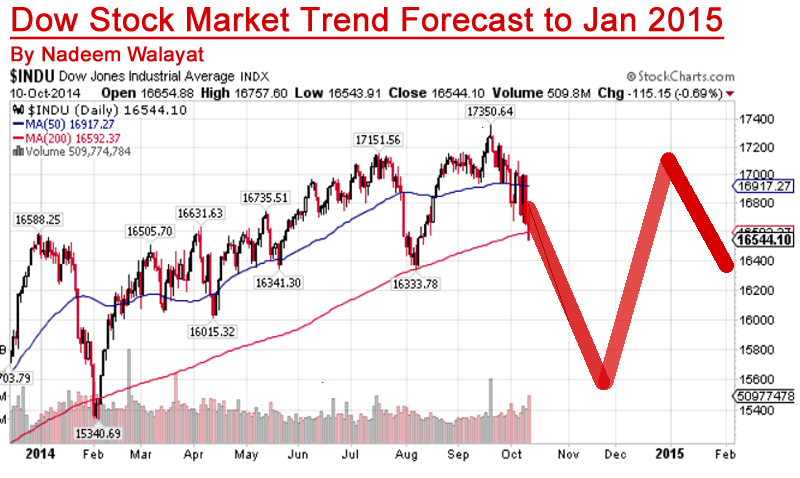2013 Forecast Stock Market Predictions Will Be Wrong
Post on: 13 Июль, 2015 No Comment

China Photos | Stringer | Getty Images
Investors sifting through analysts’ new year predictions for stock market movements may want to press delete and look instead for sound companies, as history shows equity index forecasts are usually wrong.
In good years and bad, according to Reuters polls, most fund managers and analysts have struggled to predict annual moves in the main European stock markets, underestimating rallies and missing crashes.
According to data from Lipper, a Thomson Reuters company, the 11 best-performing European equity funds over the past 15 years all employed so-called bottom-up strategies, investing in individual companies with strong fundamentals rather than betting the whole market will rise or fall.
These top funds saw their value grow between 150 percent and 500 percent over the period, compared to 53 percent growth on average for the 290 funds polled.
Looking at the macro economic environment helps you understand where better to allocate your time and shine your torch, but I don’t spend much time looking at forecasts for indices, said Feras Al-Chalabi, whose continental European equity fund at Odey Asset Management came second in Lipper’s ranking since 1997.
The problem is that fund managers, even at brainy hedge funds, seem to miss the unexpected political or economic upheavals that cause wrenching rises or falls in markets.
Some of these might be regarded as events that no one could reasonably have predicted but missing them plays havoc with forecasts. Instead, forecasters appear to base their predictions on equities’ long-term average performance and the belief that stocks generally will tend to rise over time.
When you ask people for their predictions, that’s driving them towards the most likely outcome and that’s removing them from the ability to think about extreme scenarios, said Greg Davies, head of behavioral and quantitative finance at Barclays Wealth.
The median year-end forecast for Britain’s FTSE and Germany’s Dax indexes has been on average 8.7 percent and 14.4 percent too high, respectively, since 1997, historical Reuters survey data showed.
The overshooting was largely due to a failure to predict the sell-offs after the dotcom bubble burst in the early 2000s and during the current financial crisis.
The consensus was for the Dax and the FTSE to record hefty rises in 2001, 2002, 2008 and 2011, only for the indexes to suffer double-digit percentage dips.
Flawed Estimates
When experts watch what the others are doing there can be some sort of herd effect, said Arnaud de Servigny, global head of Deutsche Bank Private Wealth’s discretionary portfolio management and investment strategy.
It is very difficult in the industry to have good experts, independent in the way they form their view. It’s a form of bias and there’s not much you can do about that.
Even when the four crash years are taken out, the mean estimate for the FTSE lagged market gains by 1.2 percent and the one for the Dax undershot the index by as much as 10.5 percent.
Analysts’ average prediction over the 15 years was for gains of between 8 and 12 percent a year, in line with equities’ long-term average.
Analysts’ forecasts are based on the idea that, in the long run, stocks are going up anyhow, William de Vijlder, chief investment officer for Strategy and Partners at BNP Paribas Investment Partners, said.

This year is a case in point. Britain’s FTSE 100 and Germany’s Dax are forecast to rise around 8 percent on expectations the global growth outlook will improve, according to recent Reuters polls.
In only one year between 1997 and 2012 was the consensus forecast for the Dax to fall and never for a drop in the FTSE.
Both indices recorded annual losses in five of those years.
Sentiment Gauge
But forecasts are a key element of financial markets, valued by many as a gauge of what others are thinking. For some of the most successful stock pickers, consensus estimates are a guide to what will not happen.
Being a stock picker, you can be quite dispassionate and ignore the headlines, said Sam Morse, whose European equity fund ranks third in Lipper’s report. As a sentiment indicator, I view (consensus estimates) in quite a contrarian way.
He added to his positions in Belgian bank KBC in late 2011, when share prices were battered and the outlook grim. The stock rose 168 percent in 2012.
Last year, global hedge funds that base their investments on macroeconomic views delivered negative returns and those that try to predict the market’s direction underperformed the global MSCI World index by nearly three times.
What the industry should be doing, rather than more accurate forecasting, is constantly trying to make the point that the world is uncertain and the right way to think about it is over a five to 10 years’ horizon, Barclays’ Davies said.
You should not be trying to pretend that you a have a crystal ball in the short term.














